by mtv.com.lb — MTV has learned that President of the Republic, Michel Aoun, proposed to Prime Minister-designate Najib Mikati three options to facilitate the formation of the government, which are: Option 1: Expanding the government to 30 ministers, provided that it includes political ministers in order to secure political coverage for the government, which will […]
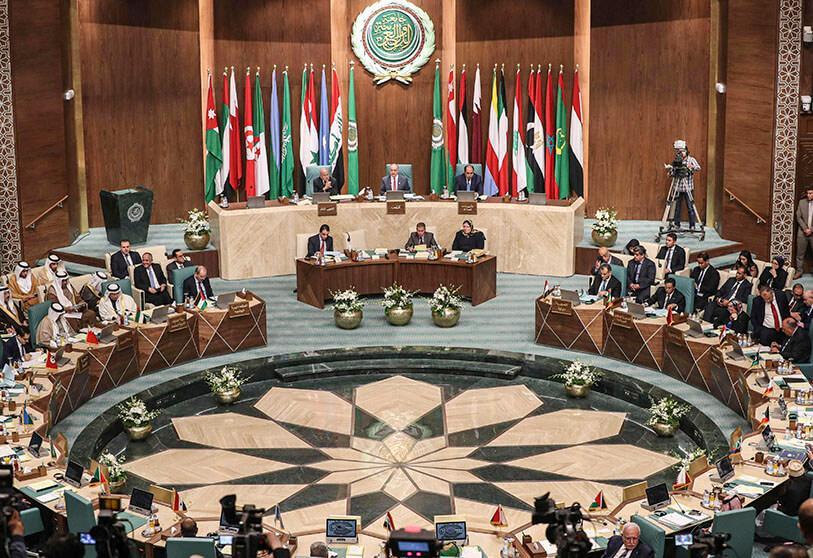
By Margarita Arredondas — atalayar.com — Delegations from 21 Arab countries are already beginning to arrive in Beirut, which is hosting a summit of Arab League Foreign Ministers on Saturday. The meeting will also be attended by the organisation’s secretary general, Ahmed Aboul Gheit of Egypt. Qatar, Kuwait, Jordan, Tunisia, Algeria, Comoros, Sudan, Somalia, Palestine and Yemen will be represented by their respective Foreign Ministers, while the United Arab Emirates, Iraq, Saudi Arabia, Bahrain, Oman, Djibouti, Morocco, Libya and Mauritania will be represented by their permanent delegates to the Arab League, as announced by the Lebanese government. Syria, which was expelled from the pan-Arab organisation in 2011, will not participate in the summit. The first to land in the country of cedars was the head of Qatari diplomacy, Sheikh Mohammed bin Rahman Al Thani, who was received by his Lebanese counterpart, Abdullah Bou Habib.
This meeting will serve to prepare for the Arab summit to be held in Algeria in October. A consultative conference is scheduled for 10 a.m., followed by a joint press conference between Ahmed Aboul Gheit and Abdullah Bou Habib, reports Al-Ain. Lebanese diplomats have relayed to the Arab media that the holding of this meeting generates “positive signals”. The sources also assured that no minutes or final decisions will be issued, as the summit will be based on the interventions of the ministers or representatives. A government official told Reuters that Aboul Gheit will meet with Lebanese President Michel Aoun on Saturday.
Prime Minister-designate Najib Mikati announced during a dinner banquet in honor of the Arab foreign ministers in the Grand Serail, that Lebanon is committed to implementing all resolutions of the Security Council and the League of Arab States, and expressed its commitment to the policy of disassociation from any Arab dispute and its adherence to preventing abuse of Arab countries or threatening their security. He also appealed to the Arab brothers to embrace Lebanon and its people, especially at this delicate stage in its history.
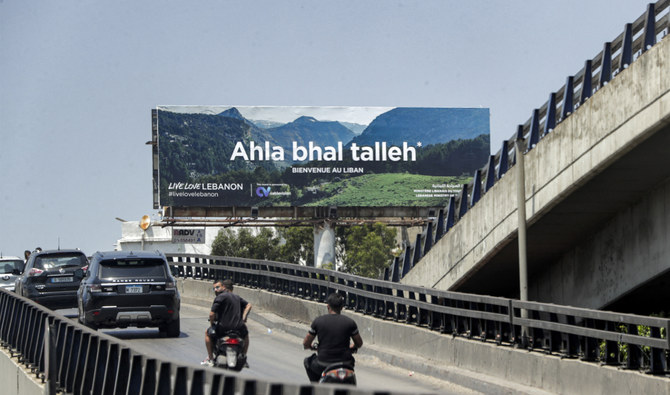
by arabnews.com — Najia Houssari — BEIRUT: Beirut’s Rafic Hariri International Airport is perhaps the only active official facility in Lebanon these days. Caretaker Minister of Public Works and Transport Ali Hamiyeh said Thursday: “Ninety-three flights arrived at Beirut airport on Wednesday, carrying 15,444 passengers coming to spend summer vacation here. “The number of planes arriving in Beirut will increase in the coming days,” Hamiyeh expected. Lebanon is counting on summertime travel to pump hard currency into the economic cycle amid accumulated political and economic crises and their impact on the living situation of the Lebanese people.
Caretaker Prime Minister Najib Mikati, who is also PM-designated, warned Thursday during the Parliamentary Finance and Budget Committee meeting: “Every delay in coming up with solutions to crises costs Lebanon $25 million a day.” A source at the Middle East Airlines told Arab News: “As a result of the economic crisis, COVID-19 precautionary measures, and the decline in the financial capabilities of the Lebanese, only a few thousand pilgrims will be traveling to perform Hajj this year. Their numbers reached over 25,000 in previous years.” On Wednesday, an MEA flight carrying the first batch of Lebanese pilgrims landed at King Abdulaziz International Airport in Jeddah. MEA is the only authorized airline in Lebanon to transport pilgrims to and from Saudi Arabia. The economic collapse and the national currency’s depreciation made the pilgrimage more difficult for those wishing to go to Makkah.
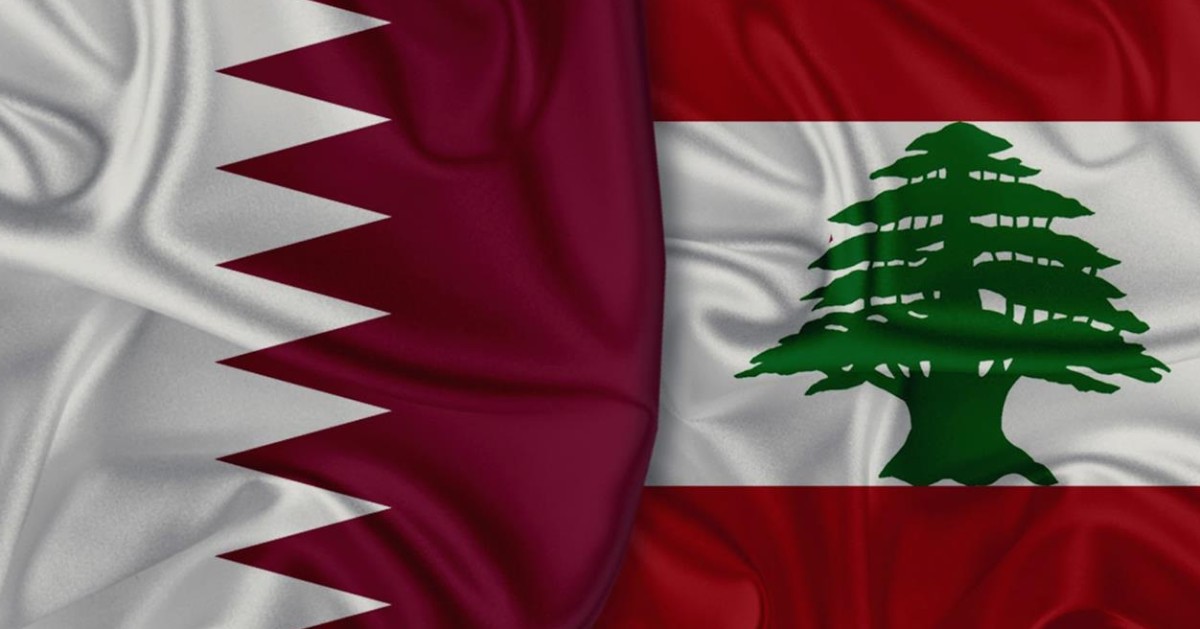
DOHA/BEIRUT, (Reuters) – Qatar has pledged $60 million to the Lebanese army, state news agency QNA said on Thursday, funding that is earmarked to support the salaries of Lebanese soldiers, two sources briefed on the deal told Reuters. The Lebanese Armed Forces (LAF) said the package was intended “to support members of the army” but did not specifically mention salaries. The Qatari government did not have any immediate comment. Discontent has been brewing in the security forces as Lebanon’s currency has lost more than 90% of its value against the dollar, driving down most soldiers’ wages to less than $100 per month. “The funding is specifically earmarked to support soldiers salaries. It will provide support for a period of time with the goal of stabilizing the situation,” one of the sources said. Aram Nerguizian, a senior military adviser at the Carnegie Middle East Center, said “it is the intention of the LAF to deploy the full amount of the Qatari grant to enable a $100 cost-of-living adjustment per LAF household over the next six-to-seven months.”
The hope is that the Qatari grant would open the door for at least $50 million in U.S. funding as well as other sources of support to bolster the army to the end of the year, Nerguizian said. Lebanon’s financial crisis has gutted public sector salaries and the amount paid to soldiers is barely enough to afford a basic subscription to a generator service that could offset the 22-hour cuts in the state electricity grid. The army’s canteen stopped offering meat to troops in 2020 to save money. The following year, it began offering sightseeing tours in its helicopters to raise funds. To supplement their low salaries, many troops have taken extra jobs and some have quit, raising concerns that the institution – one of few in Lebanon that can rally national pride and create unity across its fractured sectarian communities – could be fraying. At the start of Lebanon’s civil war in the 1970s, fissures along sectarian lines in the army helped fuel a descent into militia rule.
\
سجعان قزي
@AzziSejean
السُرعةُ التي قَدّمَ فيها الرئيسُ المكلَّفُ ـــ وحسنًا فَعل ـــ إلى رئيسِ الجُمهوريّةِ تشكيلةَ حكومةِ تصريفِ الأعمالِ معدَّلةً قليلًا، قد تُنبئُ بتأخيٍر، لا بتسريعٍ، في تشكيلِ الحكومة، فقرّرَ وضعَ الكُرةِ في ملعبِ الرئيسِ عون من اللحظةِ الأولى. هذه الحكومةُ الحاليّةُ، أكانت قائمةً بكاملِ صلاحيّاتِها أم مستقيلةً تُصرِّفُ الأعمال، ليست جديرةً بالبقاءِ لمواكبةِ رحيلِ العهد، ولا مؤهَّلةً لتَحمُّلِ مسؤوليّةِ الشرعيّةِ في حاِل حَصَلَ شغورٌ رئاسيّ.
الأمرُ لا يَتعلّقُ برئيسِها وبمستوى وزرائِها، وبينَهم من يَتَّسِمُ بالجِديّةِ والنشاطِ والأخلاق، إنّما بتركيبتِها السياسيّةِ الجانِـحةِ نحوَ محورِ الممانعةِ رغمَ اعتدالِ رئيسِها. لذا تحتاجُ البلادُ “حكومةَ احتياطٍ” جديدةً بوزرائِها وتوازناتِـها الوطنيّةِ وتداولِ حقائبِها، لا رَتْقَ هذه الحكومةِ وترميمَها. لسنا من مُستَخْدِمي الحكوماتِ المستعمَلة. لو لم نكُن في ظرفٍ انتقاليٍّ ومصيريٍّ في آنٍ معًا، لهانَتِ الأمور. لكنَّ كلَّ يومٍ يحمِلُ تطوراتٍ وأحداثًا تؤثّرُ على مصيرِ وِحدةِ لبنان.
إذا كنّا عاجزين عن تأليفِ حكومةٍ جديدةٍ وعن تكوينِ أكثريّةٍ نيابيّةٍ ثابتةٍ، وعن انتخابِ رئيسِ جُمهوريّة، ماذا يبقى إِذَن من النظامِ الديمقراطيِّ ووِحدةِ الكيانِ اللبنانيّ وصيغةِ التعايشِ والدولةِ المركزيّة؟ “قِفا نبكِ من ذِكرى حبيبٍ ومنزِلِ”. محاولةُ تعويمِ الحكومةِ المستقيلةِ دليلٌ جديدٌ نُعطيه لأنفسِنا وللعالمِ يُــثبِتُ أنَّ لبنانَ الحاليَّ تحوّلَ دولةً فاشِلة. نحن نعيشُ أزمةَ وجودٍ وشَراكةٍ أكثرَ من أزمةِ نظامٍ وإصلاحات. لقد تعاقبَ الشعبُ والمنظومةُ الحاكمةُ والقِوى السياسيّةُ على هدرِ جميعِ الفرصِ المنقِذةِ التي تَوفّرَت للبنان: من القراراتِ الدُوليّةِ و”إعلانِ بعبدا”، مرورًا “بالثورةِ” والإصلاحات، إلى الانتخاباتِ النيابيّةِ والمبادراتِ العربيّةِ والدُوليّة. بُنيانٌ عَصيٌّ على الإِنقاذِ من دونِ إعادةِ هندَستِه. الوِحدةُ اللبنانيّةُ صارت كانتونًا خاصًّا متعدِّدَ الطوائفِ وعابرَ المناطق يَختصرُ لبنانَ الكبير.
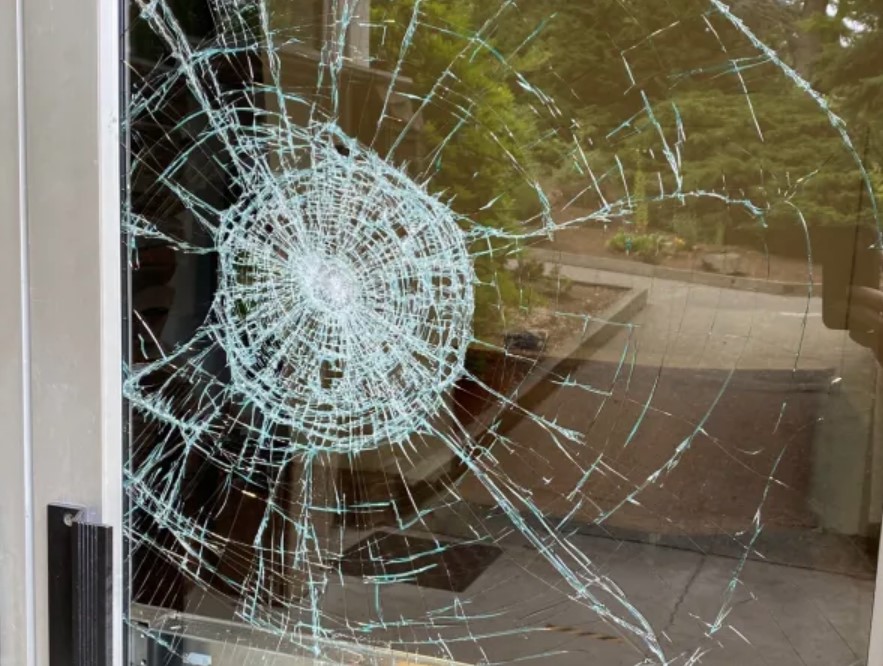
By Joe Bukuras — catholicnewsagency.com — A woman was praying alone in the perpetual adoration chapel early Tuesday morning when the wave of anti-Catholic vandalism and violence sweeping the U.S. struck St. Louise Catholic Church in Bellevue, Washington. Hearing a commotion outside, the woman ventured into the hallway. There, she confronted a masked intruder standing outside the parish center, smashing the glass front door. The person screamed profanities at the woman, who ran back into the chapel. Terrified, she locked the door behind her and called the pastor, Father Gary Zender, while hiding behind a piano. “She called me on my office number just pleading for help to come and get her and rescue her,” Zender told CNA. “She was scared to death.” A surveillance camera captured the frightening incident on video.
The footage shows a masked person with long hair striding up to the door carrying a large rock and pink backpack. The person hurls the rock at the front door, three times, then kicks the door four times, shattering the glass. The person then removes a can of black spray paint from the backpack and begins to write graffiti on the building’s exterior. Next, the assailant makes obscene gestures toward the door, smashes the glass again with the can of spray paint and pushes the door. Then the person appears to scream at someone inside the building before continuing to spray-paint the building’s exterior and sidewalk. Graffiti legible in photos provided by the police reads “woman haters,” “groomers rapists,” and “the church is child abuse,” among other words. You can watch the surveillance footage in the video below. The attacker, who entered the church property around 9:30 a.m., also smashed a different glass door at the parish hall and defaced a statue of Our Lady, Undoer of Knots, Zender said. He estimated the damage at $10,000.
by naharnet.com — The line-up submitted by PM-designate Najib Mikati to President Michel Aoun on Wednesday contained changes to five to six ministerial portfolios from the current government, including the energy portfolio, TV networks said. “Mikati proposed a specialist who is not close to the Free Patriotic Movement for the energy and water portfolio,” MTV […]
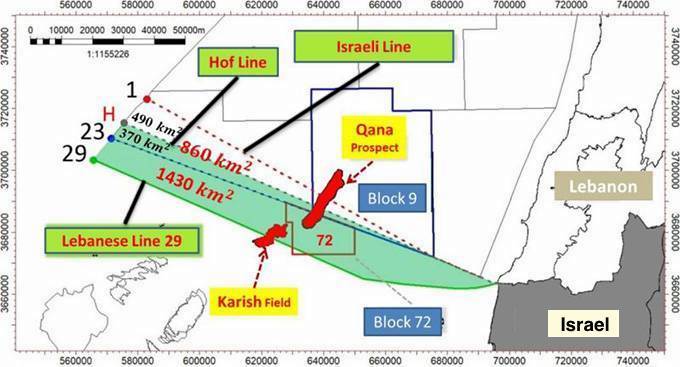
by axios.com — Barak Ravid — U.S. energy envoy Amos Hochstein told Israeli negotiators last week that he wanted to try to get a deal between Israel and Lebanon on the maritime border dispute in two months, two Israeli officials told Axios.
Why it matters: Hezbollah leader Hassan Nasralla has threatened to use force to prevent the Karish rig, which is located south of the disputed area and seen by Israel as a “strategic asset,” from producing natural gas, which is expected to start in 10 weeks. Hochstein is concerned about a potential escalation and thinks the time left can be used as a window of opportunity when both sides will have an incentive to get a deal and avoid a flare-up, according to Israeli officials. Driving the news: Last Friday, Hochstein had a virtual meeting with the Israeli negotiations team and briefed them on the position he received from the Lebanese government during his trip to Beirut the week before.
Israeli officials told Axios Hochstein sounded upbeat about his trip to Beirut. According to the officials, he said there was progress and all main political players in Lebanon managed to get a consensus regarding the way forward. The Israeli negotiators stressed the most important thing for them is ensuring Israel’s security interests are guaranteed, Israeli officials told me. An agreement could allow Lebanon to begin natural gas exploration, which may boost its imperiled economy. What they’re saying: The Israeli officials said they think two months is a possible timetable for getting a deal in principle. “We all understand the time window, and we all hope we can make progress,” a senior Israeli official told me.
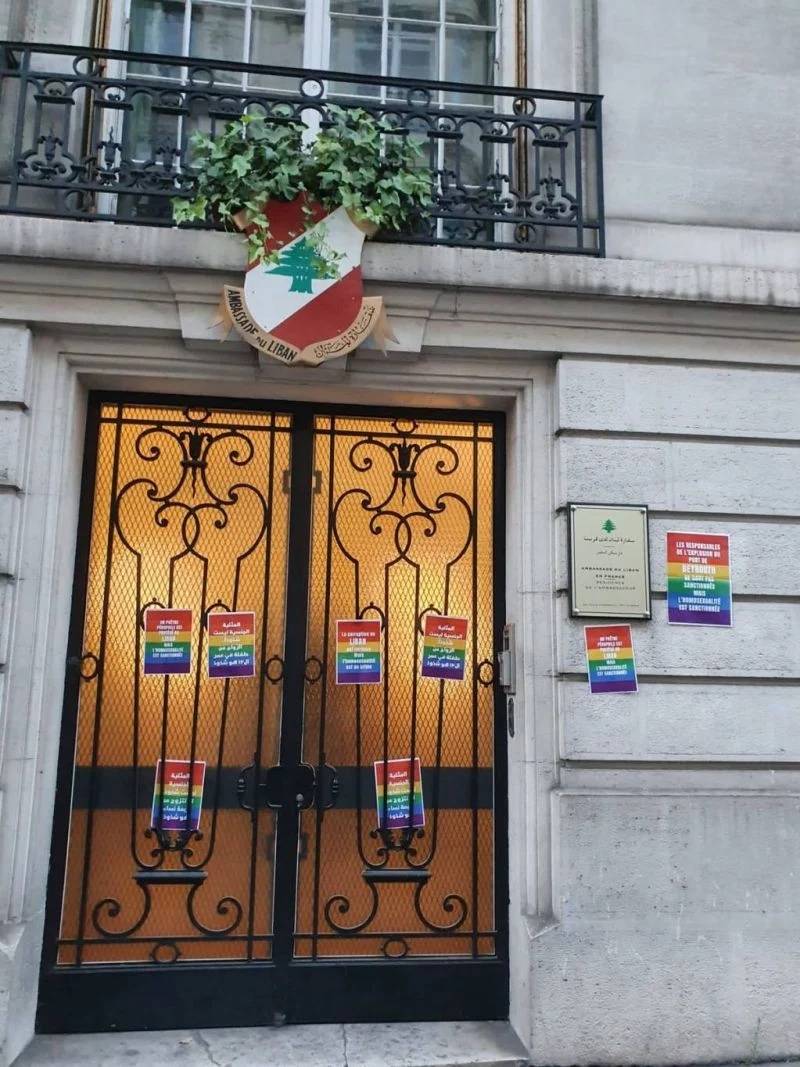
by today.lorientlejour.com — BEIRUT — A heated argument took place between Lebanese ambassador Rami Adwan and Lebanese activists in France, after the latter put up rainbow-colored posters, the symbol of the LGBTQ community, on the walls of the Lebanese Embassy in France on Monday night, prompting the ambassador to face the activists, according to a video of the incident that is circulating on social media. When the activists accused Adwan of representing the Lebanese political class, as heard in the video, the ambassador said in response that this claim is “false” and that the embassy represents the Lebanese, including the activists. “You are wrong when you think that the embassy represents the ruling class and not you young man,” said the ambassador addressing an activist. And when an activist then asked him to denounce the various attacks that have taken place in Lebanon, in recent days, against the LGBTQ+ community, Adwan replied that the Lebanese Embassy does not have to express itself on whether it is for or against them. Then the situation escalated when the ambassador accused an activist of “spoiling” the embassy by sticking up flyers on its walls. Adwan then said, “You are a rotten man, you don’t know how to talk to people.”
Adwan explained to L’Orient-Le Jour on Tuesday that “it is the refusal to dialogue that offended” him, adding that “the embassy makes a lot of effort to represent its community and be as open as possible. Adwan also said that what the activists did “is a bit offensive.” The tiff between the ambassador and the Lebanese came days after Lebanon’s caretaker Interior Minister Bassam Mawlawi sent a letter to the General Directorate of General Security and the General Directorate of the Internal Security Forces calling on security forces to prevent gatherings that “promote sexual perversion,” referring to homosexuality. At 42 Villa Copernic, in the 16th arrondissement of Paris, the walls were plastered with colorful posters Monday night. “Those responsible for the explosion in the Port of Beirut are not sanctioned, but homosexuality is sanctioned,” the flyers read, in addition to “A pedophile priest is protected in Lebanon, but homosexuality is sanctioned.”
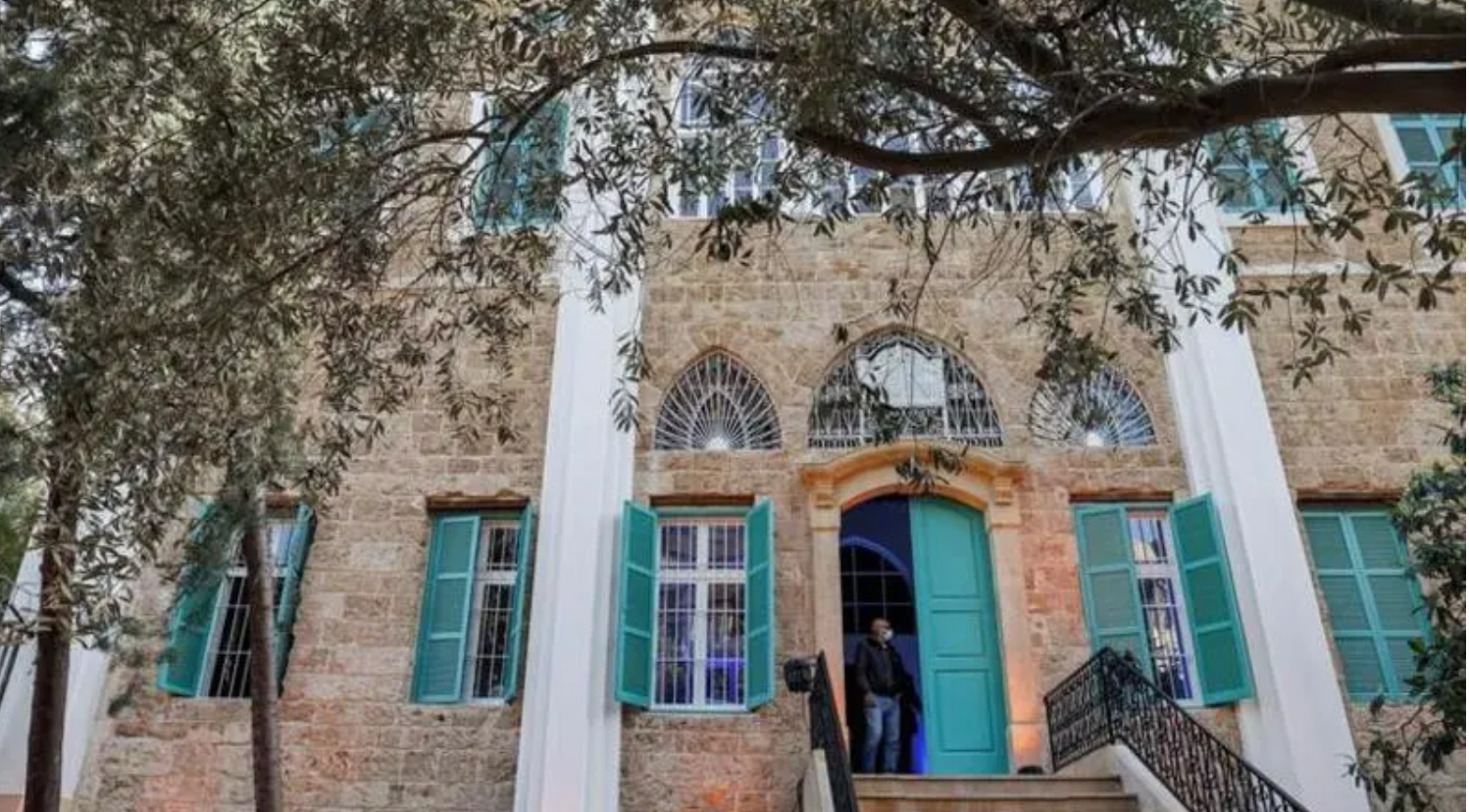
by aljazeera.com — Beirut, Lebanon – Lebanon continues to reel from rampant power cuts and water shortages, as its years-long economic crisis continues. But its government is banking on a summer tourist season for a much-needed cash injection, courtesy of thousands of Lebanese working abroad who are expected to come back on holiday. This summer, Lebanon is desperate, more than ever, for its diaspora. “I am asking with all my love for our family and friends to come to Lebanon,” the caretaker tourism minister Walid Nassar said at the country’s international airport earlier this month. “They will spend money anywhere they go, but Lebanon is today in greater need.”
The tourism ministry, with funding from a number of companies, set up billboards depicting Lebanon’s beaches, rivers, ancient towns, and historical sites. An optimistic Nassar anticipates that a million tourists will arrive in Lebanon this summer, pouring up to $3.5bn into the economy. But over at Ferdinand’s, a gastropub off Beirut’s once-bustling Hamra Street, the mood is far more subdued. “You can only hear people talking about either their love life or the situation in Lebanon,” owner Riad Aboulteif told Al Jazeera.
Like hotels, cafes, and restaurants across the country, the pub gets a spike in clientele over the summer and around Christmas. “Yeah, we definitely get a minimum increase of 20 percent or so,” Aboulteif explains. “But that extra revenue doesn’t last very long.” Rampant power cuts over the past year, a more than 1000 percent increase in the price of food, and a Lebanese pound that has lost more than 90 percent of its value against the dollar in three years are just a few of the many factors that make operating a business an expensive for Aboulteif. He has recently been forced to move the pub a few blocks next to a hotel, where it can benefit from a supply of electricity to keep its lights on, and refrigerators running without interruption. “We used to pay a lot for two private generator subscriptions, so we had to eventually move,” Aboulteif said. “You can’t serve your customers spoiled goods.”
Lebanon’s lease of life



